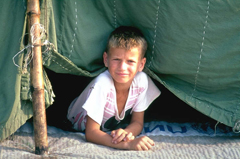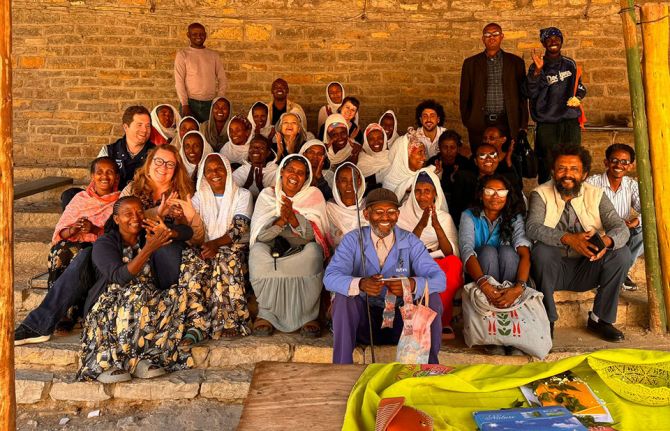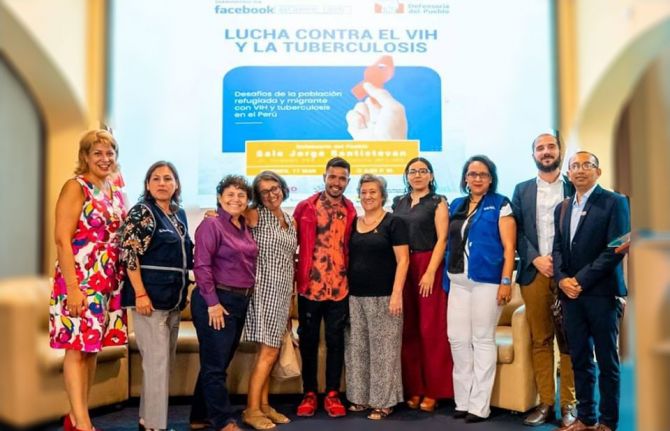
Feature Story
Focus on: HIV and refugees
20 June 2007
20 June 2007 20 June 2007
Conflict and displacement make refugees highly
vulnerable to the risk of HIV. Photo credit: UNAIDS
As UNHCR announces that the number of refugees has increased for the first time since 2002, AIDS remains a key challenge for growing displaced populations.
Displacement of people has an enormous effect on their lives, as well as upon the lives of host communities.
Conflict and displacement make refugees highly vulnerable to the risk of HIV. As refugees struggle to meet their basic needs such as food, water and shelter, women and girls are often forced to exchange sexual services for money, food or protection. And too often refugees are excluded from national AIDS initiatives and policies and subsequently do not have access to vital HIV prevention and treatment services.
Access to basic HIV-related care and support for refugees is also rarely given adequate attention. For women and girls in particular, conflict and displacement heighten their vulnerability to the risk of HIV. During conflict, rape is often used as a weapon of war. Women and girls are also often subject to sexual violence and exploitation in refugee settings.
A policy brief developed by UNAIDS and the UN High Commission on Refugees (UNHCR) focuses specifically on actions required to prevent HIV and mitigate the effect of HIV on refugees and their host communities.
The policy brief focuses on emergency and post-emergency phases and suggests actions for governments, civil society and international partners in order to ensure that refugee and human rights laws are applied, and that the needs of refugees are included into national HIV policies and programmes.
Links:
Read the policy brief on HIV and Refugees
More on Emergency and humanitarian response - Technical Policies of the UNAIDS Programme
Read more stories on HIV and refugees from UNHCR



